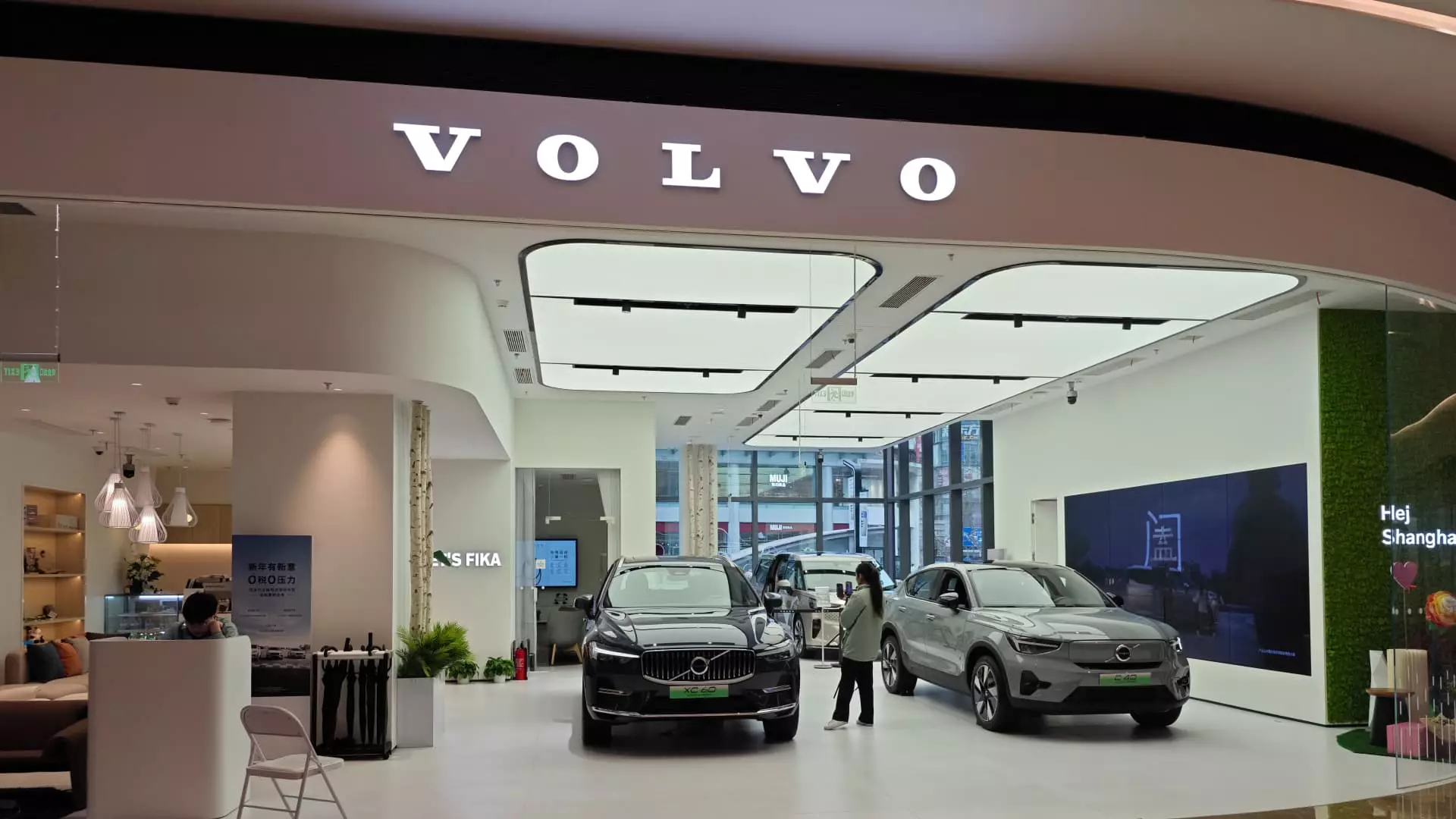Volvo Cars recently made the decision to scale back its margin and revenue targets, signaling a shift in the company’s strategy. The Swedish automaker, known for its commitment to electric vehicles, announced that it is no longer aiming for 100% all-electric vehicle sales by 2030. This decision has had a significant impact on its financial goals, with the company now setting a 2026 EBIT margin target of 7-8%, down from the previous target of “above 8%.” This adjustment was attributed to increased complexity in global trade and tariffs, highlighting the challenges that automakers face in the current geopolitical landscape.
The ever-shifting nature of international trade disputes and tariffs has created a challenging environment for automakers like Volvo Cars. As they strive to navigate the complexities of global trade relations between the European Union, China, and the U.S., companies must also contend with the competitive demands of the evolving EV market. These factors have contributed to Volvo Cars’ decision to realign its strategic goals and focus on outgrowing the premium car market until 2026, rather than pursuing a specific revenue target within a set range.
Volvo Cars has been actively working towards expanding its lineup of electric and plug-in hybrid models as part of its commitment to sustainability. The company currently offers five fully-electric models on the market, with an additional five in development. However, in a recent announcement, Volvo Cars revealed that it would no longer target 100% electric vehicle sales by 2030, opting instead for a range of 90-100%. This adjustment allows for the continued sale of mild hybrid models, which utilize both internal combustion engines and electric assistance. The decision was driven by a combination of factors, including consumer demand, infrastructure limitations, withdrawal of government incentives, and uncertainty surrounding tariffs on EVs in various markets.
To strengthen its position in the rapidly evolving automotive industry, Volvo Cars announced an extension of its partnership with U.S. chip giant Nvidia. This collaboration will focus on developing advanced features such as driving assistance and autonomous driving technology. In addition, the company revealed plans to transition to a “single technology stack” in an effort to streamline EV manufacturing processes and reduce costs. By leveraging technology and innovation, Volvo Cars aims to enhance its competitiveness and drive growth in the electric vehicle segment.
Recent sales figures released by Volvo Cars showed a 3% year-on-year increase in global sales for August, driven by strong growth in Europe but offset by a decline in China. Fully-electric and plug-in hybrids accounted for nearly half of the total vehicle sales in August 2024, underscoring the company’s progress in expanding its electric vehicle lineup. Despite the challenges and adjustments in targets, Volvo Cars remains committed to its long-term goal of achieving fully electric sales when market conditions are favorable. With continued focus on innovation, strategic partnerships, and market dynamics, Volvo Cars is poised to navigate the evolving landscape of the automotive industry and drive sustainable growth in the electric vehicle market.

Leave a Reply